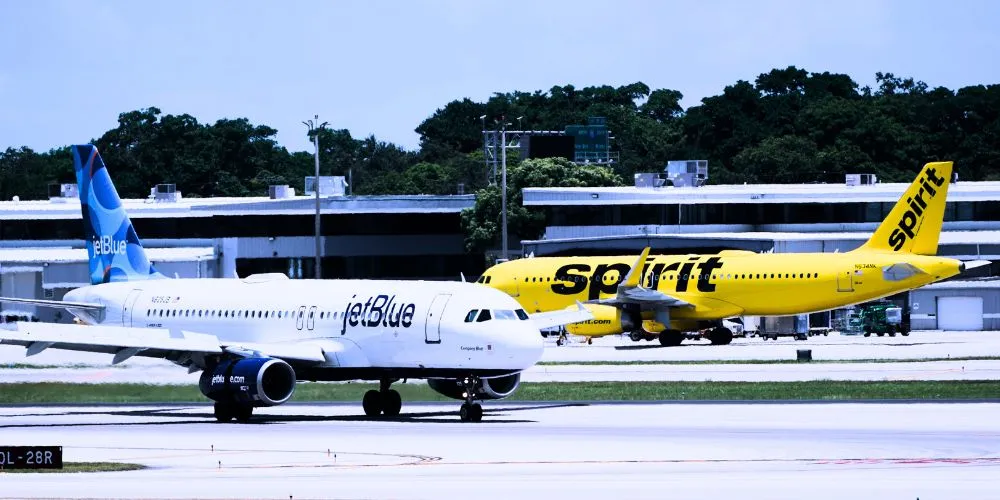In a significant blow to JetBlue’s proposed $3.8 billion acquisition of Spirit Airlines, Spirit’s shares took a nosedive of 47% on Tuesday after a federal judge in Boston ruled against the deal. The court decision, driven by concerns about potential fare hikes for flyers, especially Spirit’s budget-conscious customers, and the substantial debt burden on JetBlue (JBLU), marked the first instance in over two decades that the US government sought to block a major airline merger.
JetBlue and Spirit disagreed with the ruling in statements to CNN, emphasizing their belief that the merger would enhance competition and provide more choices to consumers, along with low fares and exceptional service. Both companies are currently reviewing the court’s decision and evaluating their next steps within the legal process.
JetBlue’s shares managed to gain 4.9% on Tuesday afternoon despite the setback, suggesting a nuanced market response to the court ruling.
In March, the US Justice Department initiated legal action to halt the acquisition, underlining the Biden administration’s commitment to fostering greater competition in the airline industry to lower consumer costs. The antitrust lawsuit against JetBlue’s acquisition of Spirit was accompanied by the withholding of certification required for the carriers to merge operations.
Attorney General Merrick Garland hailed the ruling as a victory for millions of travelers, averting potential higher fares and limited choices that might have resulted from the proposed merger. Garland reaffirmed the Justice Department’s dedication to rigorously enforcing antitrust laws to safeguard American consumers.
JetBlue argued that the deal would introduce a new, stronger competitor to the dominant four airlines in the industry, working towards reducing fares rather than escalating them. This legal battle reflects a broader trend of the Biden administration taking a more assertive stance against mergers and alliances, emphasizing the need for increased competition.
The US airline industry has undergone more than two decades of mergers and consolidation, resulting in four major carriers – American Airlines, United, Delta Air Lines, and Southwest Airlines – controlling approximately 80% of the nation’s air traffic. While these mergers have made the industry more profitable, concerns about reduced choices for travelers and potential fare increases have been raised.
As JetBlue and Spirit reassess their strategies in light of the court ruling, the implications extend beyond their specific case, influencing the landscape of future mergers and consolidation efforts in the airline sector.










